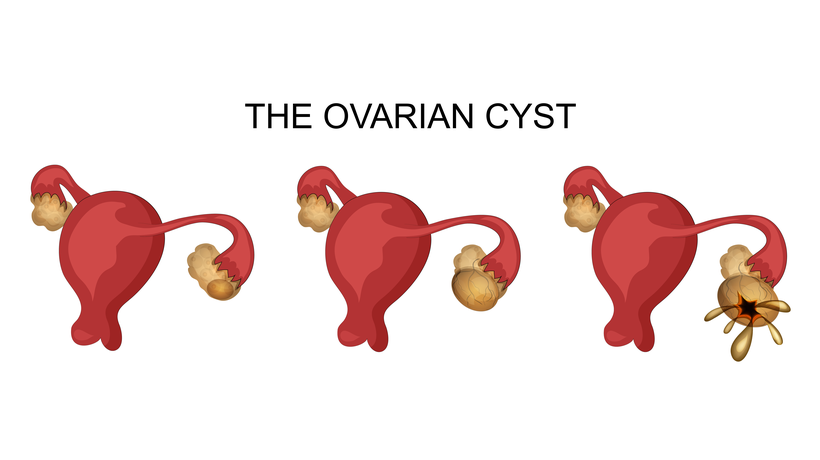If you have a regular period, chances are you’ve developed an ovarian cyst at one point or another. Although they may sound scary, ovarian cysts are very common and completely normal. In most cases, these fluid-filled sacs are harmless and cause little to no discomfort, and will usually go away on their own within a few months.
However there are some instances where these cysts can cause major discomfort and require treatment to be removed. The National Institutes of Health estimates that 5 to 10% of women require surgery to remove an ovarian cyst. Especially in cases of an ovarian cyst rupture, which can happen randomly or from intense physical activity, people can experience serious abdominal and pelvic pain that requires medical attention.
According to Mayo Clinic, some symptoms of a ruptured ovarian cyst include:
- Dull or sharp pain on one side of your lower abdomen
- A feeling of fullness or heaviness in your abdomen
- Needing to urinate more often
- Bloating
- Pain that comes with a fever
- Pain accompanied by vomiting
- Pain during or after sex
- Referred shoulder pain
- Lightheadedness or weakness
- Breathing at a rapid rate
- Chilly, clammy skin
- Abnormal vaginal bleeding
Although most of the time these symptoms are benign and aren’t anything to worry about. But Dr. Pari Ghodsi, a board-certified ob-gyn and fellow of the American College of Obstetrics and Gynecology, told Self Magazine that if you feel sudden abdominal pain and over-the-counter pain medicine isn’t helping, call your doctor or go to the emergency room, as it could be a ruptured cyst or another underlying health issue.
Moreover, if you experience a fever, vomiting, fatigue, breathing problems, having clammy skin, and unexpected vaginal bleeding; experts say you should probably see a doctor.
Unfortunately, there is no way to prevent ovarian cysts from developing, but periodic pelvic exams can help doctors detect larger cysts before they burst.



